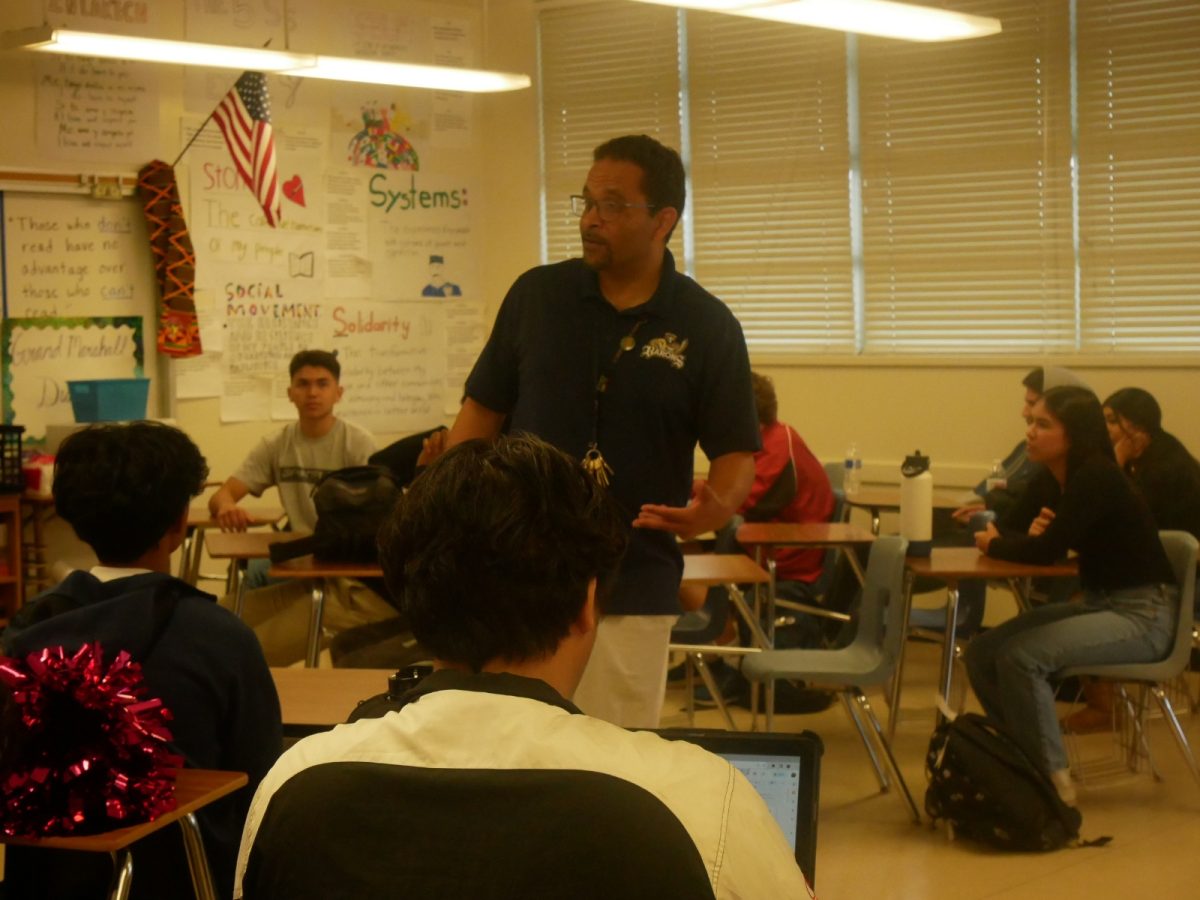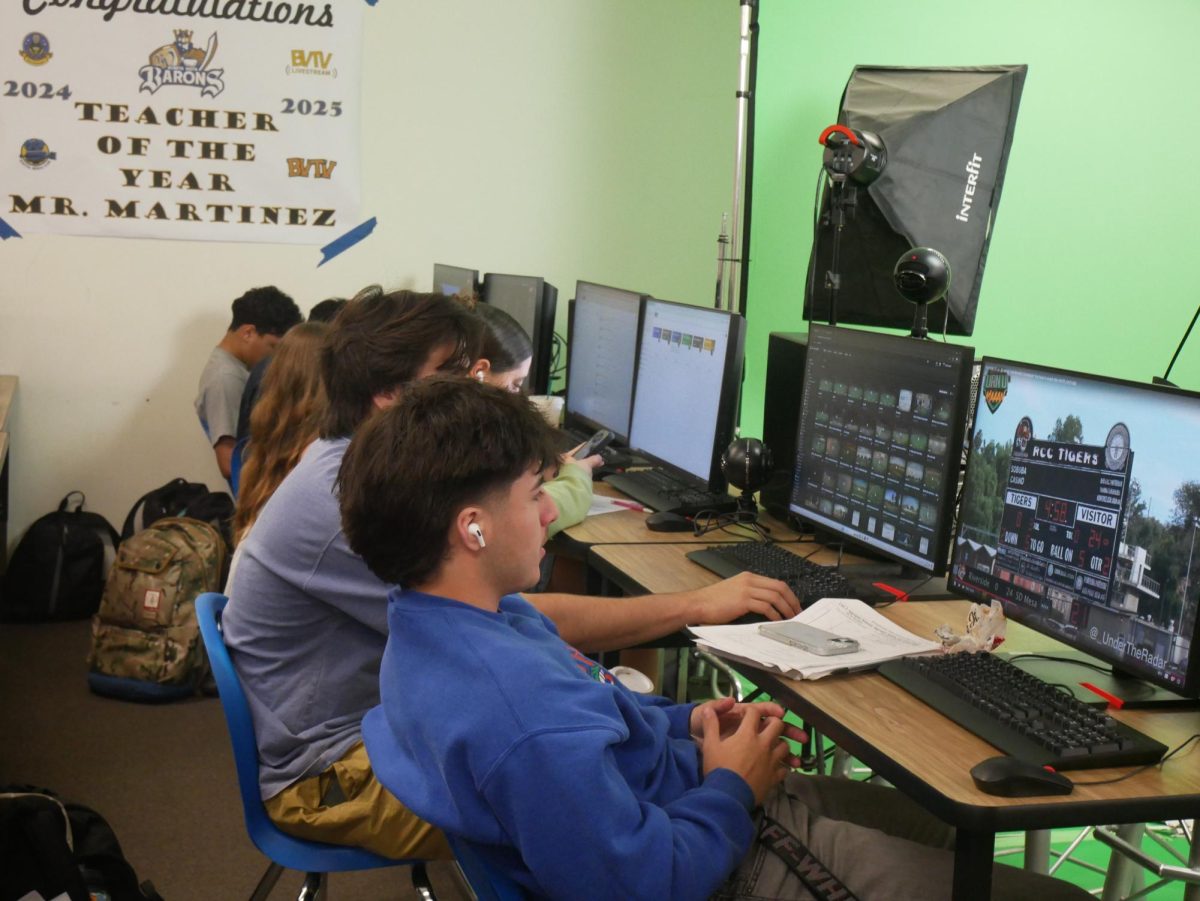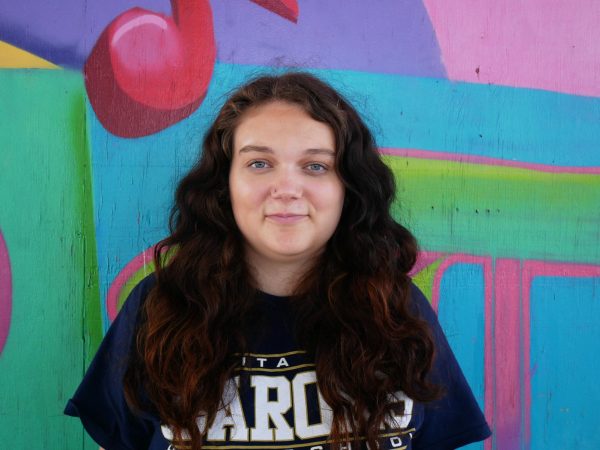During the summer of 2022, Bonita Vista High (BVH) decided to implement the African-American studies class from the 2024-2025 school year to the 2023-2024 school year—as a response to unforeseen circumstances and challenges. School administrators, in consultation with teachers, felt it was in the best interests of the students to move the class closer to the current academic year. This change was made with the intention of making the course more accessible to a wider range of students.
“The College Board is going to offer this class in the 2024-2025 school year nationwide, but they were looking for schools to pilot it [in] 2023-2024. Romero and I thought it would be great if we were one of those pilot schools,” BVH Advanced Placement (AP) African American Studies teacher Don Dumas said.
The plan to introduce African American Studies as an AP course in 2024 was met with anticipation and enthusiasm. The objective was to provide high school students with a challenging academic program that traveled the history, culture and contributions of African Americans in the United States. The development is seen as a positive movement by Dumas towards a more inclusive and diverse curriculum causing it to be more accepted.
“I think this class is great because generally this class was not supposed to happen until next year and it will eventually be available for K-12, if we continue the effort of teaching these types of classes,” Dumas said.
Behind the accelerated introduction of this class, there is a significant narrative of how Dumas played a pivotal role in persuading BVH Principal Lee Romero to make this transformative decision. Romero, recognizing Dumas’s teaching abilities and understanding his potential to significantly impact class enrollment, wholeheartedly supported the change.
“Last year, Dumas showed interest in teaching [African American Studies] and the board said we could fund a pilot class. When they asked me, I said if we have enough interest, then we will do it,” Romero said.
In his discussion of African American Studies, Dumas passionately emphasizes the importance of integrating the subject into the BVH’s curriculum. He argues that the prevailing educational system has traditionally focused on the history and contributions of white Americans, often sidelining the crucial role played by African Americans throughout American history.
“There’s topics of African diasporas. You’re looking at African and African descended people that now live all over the world and their relation, as well as the pre-atlantic slave trade and African cultures,” Dumas said.
Dumas emphasizes how African Americans have faced significant struggles, endured immense hardships and contributed significantly to the nation’s development, making their inclusion in the curriculum essential for a well-rounded and inclusive education. However, these struggles African Americans face are not portrayed deeply in school textbooks.
During the summer of 2022, Bonita Vista High (BVH) decided to implement the African-American studies class from the 2024-2025 school year to the 2023-2024 school year—as a response to unforeseen circumstances and challenges. School administrators, in consultation with teachers, felt it was in the best interests of the students to move the class closer to the current academic year. This change was made with the intention of making the course more accessible to a wider range of students.
“The College Board is going to offer this class in the 2024-2025 school year nationwide, but they were looking for schools to pilot it [in] 2023-2024. Romero and I thought it would be great if we were one of those pilot schools,” BVH Advanced Placement (AP) African American Studies teacher Don Dumas said.
The plan to introduce African American Studies as an AP course in 2024 was met with anticipation and enthusiasm. The objective was to provide high school students with a challenging academic program that traveled the history, culture and contributions of African Americans in the United States. The development is seen as a positive movement by Dumas towards a more inclusive and diverse curriculum causing it to be more accepted.
“I think this class is great because generally this class was not supposed to happen until next year and it will eventually be available for K-12, if we continue the effort of teaching these types of classes,” Dumas said.
Behind the accelerated introduction of this class, there is a significant narrative of how Dumas played a pivotal role in persuading BVH Principal Lee Romero to make this transformative decision. Romero, recognizing Dumas’s teaching abilities and understanding his potential to significantly impact class enrollment, wholeheartedly supported the change.
“Last year, Dumas showed interest in teaching [African American Studies] and the board said we could fund a pilot class. When they asked me, I said if we have enough interest, then we will do it,” Romero said.
In his discussion of African American Studies, Dumas passionately emphasizes the importance of integrating the subject into the BVH’s curriculum. He argues that the prevailing educational system has traditionally focused on the history and contributions of white Americans, often sidelining the crucial role played by African Americans throughout American history.
“There’s topics of African diasporas. You’re looking at African and African descended people that now live all over the world and their relation, as well as the pre-atlantic slave trade and African cultures,” Dumas said.
Dumas emphasizes how African Americans have faced significant struggles, endured immense hardships and contributed significantly to the nation’s development, making their inclusion in the curriculum essential for a well-rounded and inclusive education.








